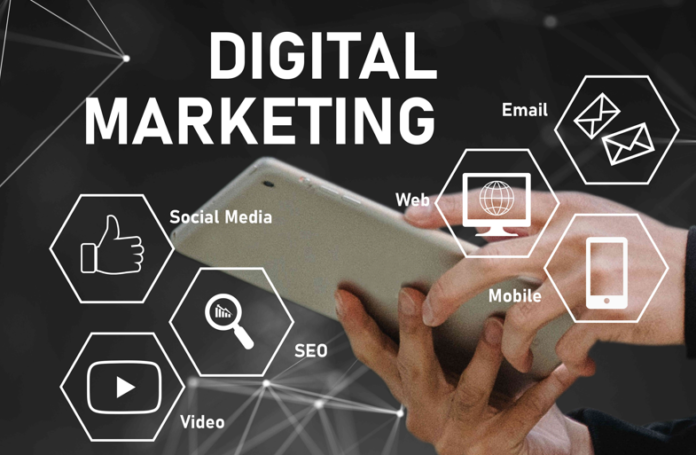Welcome to the dynamic world of digital marketing, where trends shift faster than a swipe on your smartphone. As we step into 2024, mastering digital marketing has never been more crucial for businesses looking to thrive in an increasingly competitive landscape. From small startups to established enterprises, everyone is vying for attention online. But what sets successful brands apart? It’s their ability to adapt and implement innovative strategies that resonate with their audience.
In this blog post, we’ll explore essential strategies tailored for success in 2024. Whether you’re a seasoned marketer or just starting out, there’s something here for everyone eager to elevate their digital presence and drive results. Dive in as we uncover the importance of digital marketing today and how you can harness its power effectively!
The Importance of Digital Marketing in 2024
As we navigate through 2024, digital marketing has become a cornerstone for businesses seeking growth. The online landscape is more crowded than ever, and standing out requires strategic efforts.
Consumers are increasingly turning to the internet for information and shopping. This shift underscores the necessity for brands to establish a robust online presence. Ignoring digital channels means missing out on potential customers.
Moreover, technology continues to evolve rapidly. Innovations in artificial intelligence and automation shape how marketers engage with their audience. Adapting to these changes isn’t just an option; it’s essential for survival.
The rise of social media platforms also plays a pivotal role in shaping brand narratives. Companies can connect directly with their audience, fostering loyalty and building trust in real time.
In this fast-paced environment, those who leverage effective digital marketing strategies will not only survive but thrive amidst competition.
What is Digital Marketing: Explain With Examples
Digital marketing encompasses all online strategies used to connect with audiences. It’s about promoting products or services through digital channels like social media, email, and search engines.
For instance, a clothing brand may run targeted ads on Instagram to reach a younger demographic. These visually appealing posts can drive traffic to their website, leading to potential sales.
Another example is content marketing. A baking blog might share recipes while subtly featuring specific kitchen tools for purchase. This approach not only engages readers but also builds trust and credibility.
Email marketing remains powerful too. By sending personalized messages and special offers directly to subscribers’ inboxes, businesses can nurture leads effectively.
Consider influencer partnerships. Brands collaborate with popular individuals on platforms like TikTok or YouTube for authentic promotion that resonates well with their followers. These examples illustrate how diverse digital marketing strategies can be tailored for various goals and audiences.

Understanding the Key Elements of Digital Marketing
Digital marketing encompasses several key elements that work together to create an impactful strategy.
Content is king, serving as the foundation for engaging audiences. High-quality content builds trust and drives conversions. It can take many forms, from blog posts and videos to infographics.
Search Engine Optimization (SEO) enhances visibility in search engine results. By optimizing your website and content with relevant keywords, you attract more organic traffic.
Social media platforms act as powerful channels for reaching potential customers. They allow brands to interact directly with their audience while promoting products or services through targeted campaigns.
Email marketing remains a staple tool for nurturing leads and maintaining customer relationships. Personalized messages keep your brand top-of-mind and encourage repeat business.
Analytics play a crucial role in understanding performance metrics. Data-driven insights guide decision-making, offering clarity on what works best in your digital marketing efforts.
Utilizing Social Media Platforms for Effective Marketing
Social media platforms have transformed the way brands connect with their audience. With billions of active users, they offer unparalleled opportunities for engagement and visibility.
Each platform serves a different purpose. Instagram is ideal for visual storytelling, while Twitter excels in real-time interactions. Facebook remains a powerhouse for community building and event promotion. Understanding these nuances helps tailor your approach effectively.
Content should be engaging and authentic to foster genuine connections. User-generated content can amplify your reach by leveraging trust among peers.
Engaging with followers through comments or direct messages creates loyalty and encourages sharing. Regularly posting relevant content ensures that you stay top-of-mind without overwhelming your audience.
Incorporating paid ads can boost visibility when organic reach falls short. Targeting specific demographics enhances efficiency, making every marketing dollar count in this competitive landscape.
Incorporating SEO and Content Marketing in Your Strategy
SEO and content marketing go hand in hand, creating a powerful synergy for digital success. By optimizing your content with relevant keywords, you enhance its visibility across search engines. This means potential customers can easily find your offerings.
Quality content is crucial. Engaging articles, videos, or infographics not only inform but also build trust with your audience. When users see valuable information tailored to their needs, they’re more likely to engage and convert.
Regularly updating your content keeps it fresh and relevant. Search engines favor websites that provide updated information. Additionally, incorporating backlinks from reputable sources boosts credibility.
Don’t forget about user experience when designing your site. Fast loading times and mobile optimization are essential factors that search engines consider when ranking pages.
Creating a well-rounded strategy ensures you’re meeting both SEO requirements and the demands of an informed audience seeking quality insights.
Utilizing Data and Analytics to Measure Success
Data and analytics play a crucial role in digital marketing. They provide insights that help marketers understand customer behavior. By analyzing user interactions, you can tailor campaigns to meet specific needs.
Tracking metrics such as click-through rates and conversion rates offers valuable feedback. It shows what strategies are working or need adjustment. Tools like Google Analytics make this process seamless.
Segmentation allows for targeted messaging based on demographic data. This ensures your content resonates with the right audience at the right time.
Moreover, A/B testing helps refine approaches by comparing different versions of ads or landing pages. Small changes can lead to significant improvements in performance.
Utilizing these tools not only enhances efficiency but also fosters smarter decision-making processes within your marketing team. The goal is clear: leverage data to boost engagement and drive conversions effectively.
Building a Strong Online Presence through Website Optimization
Website optimization is crucial for establishing a strong online presence. A well-optimized site enhances user experience, making navigation seamless and enjoyable. This encourages visitors to stay longer and explore more.
Start by focusing on your site’s loading speed. Slow websites frustrate users and increase bounce rates. Aim for a loading time of under three seconds to keep potential customers engaged.
Mobile responsiveness is another vital factor. With the rise of mobile browsing, ensure your website looks great on all devices. Google prioritizes mobile-friendly sites in its rankings, so this aspect can significantly impact visibility.
Quality content plays an essential role too. Use engaging visuals alongside informative text to capture attention. Regularly updating content also signals search engines that your site remains relevant.
Don’t forget about technical SEO elements like meta tags and alt attributes for images. These small tweaks contribute greatly to how easily people discover your site through search engines.
The Future of Digital Marketing and How to Stay Ahead
The future of digital marketing is evolving at an unprecedented pace. Emerging technologies, like artificial intelligence and machine learning, are shaping how brands connect with consumers. Personalization will become even more crucial as companies strive to create tailored experiences.
Staying ahead means embracing these innovations. Marketers must adopt AI tools for data analysis and customer insights. These resources help in crafting campaigns that resonate deeply with audiences.
Another key aspect is the growing significance of voice search and smart devices. Optimizing content for conversational queries can give businesses a competitive edge.
Furthermore, sustainability in marketing practices will gain traction among conscious consumers. Brands that prioritize ethical methods will likely build stronger loyalty.
Keeping up with trends through continuous education is essential too. Engaging with webinars, online courses, or industry conferences can provide valuable knowledge on emerging strategies and techniques.
Conclusion
Digital marketing is an ever-evolving landscape. Staying informed and adaptable is crucial for success.
Emerging technologies, changing consumer preferences, and new platforms continually reshape the market. Marketers must embrace innovation to engage their audience effectively.
Experimenting with fresh strategies can open doors you never imagined. Don’t shy away from trying something different; it could lead to remarkable results.
Collaboration with experts in various fields enhances your approach as well. Learning from others’ experiences provides valuable insights that can refine your methods.
Invest time in ongoing education and networking within the digital space. The connections made today may influence your strategy tomorrow, leading to greater opportunities down the line.
Your journey in digital marketing will be unique, filled with challenges and triumphs alike. Embrace every moment as a chance to grow and evolve in this dynamic environment.
Frequently Asked Questions (FAQs)
Digital marketing is an evolving landscape that requires constant adaptation and learning. Here are some common questions you might have.
What is digital marketing?
Digital marketing encompasses all online strategies used to promote products or services. This includes social media, email campaigns, content creation, SEO practices, and much more.
Why is digital marketing important in 2024?
In 2024, businesses must navigate a highly competitive market where consumers predominantly engage online. Digital marketing offers the tools to reach these audiences effectively and efficiently.
How can I improve my social media presence for better results?
Start by identifying your target audience and choosing platforms that align with their preferences. Create engaging content tailored for each platform while maintaining consistent branding across channels.
What role does SEO play in digital marketing?
SEO helps optimize your website so it ranks higher on search engines like Google. A strong SEO strategy ensures that potential customers can find your business easily when searching for relevant keywords.
How do data analytics contribute to successful digital marketing campaigns?
Data analytics allows marketers to track performance metrics such as engagement rates and conversion rates. By analyzing this data, businesses can make informed decisions about future campaigns and adjustments needed for improvement.
Can small businesses benefit from digital marketing?
Absolutely! Digital marketing provides cost-effective solutions for small businesses looking to grow their brand awareness without needing large budgets typically associated with traditional advertising methods.
How often should I update my website’s content?
Regular updates keep your audience engaged and signal search engines that your site is active. Aim for fresh content at least once a month while also revisiting older posts to ensure they remain relevant.
These frequently asked questions highlight just how crucial understanding digital marketing has become in today’s fast-paced world of technology-driven commerce.
